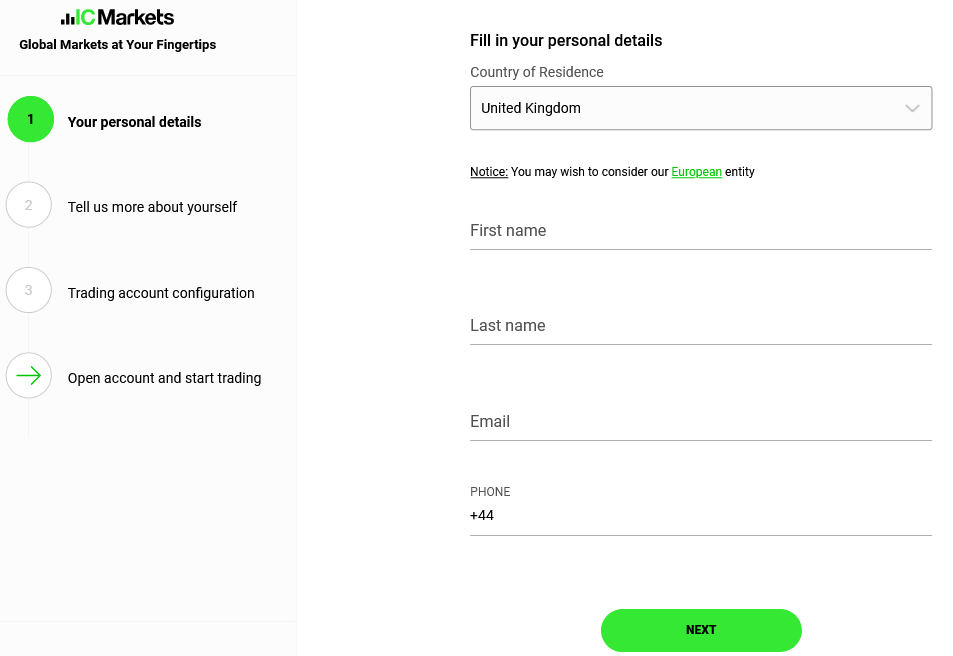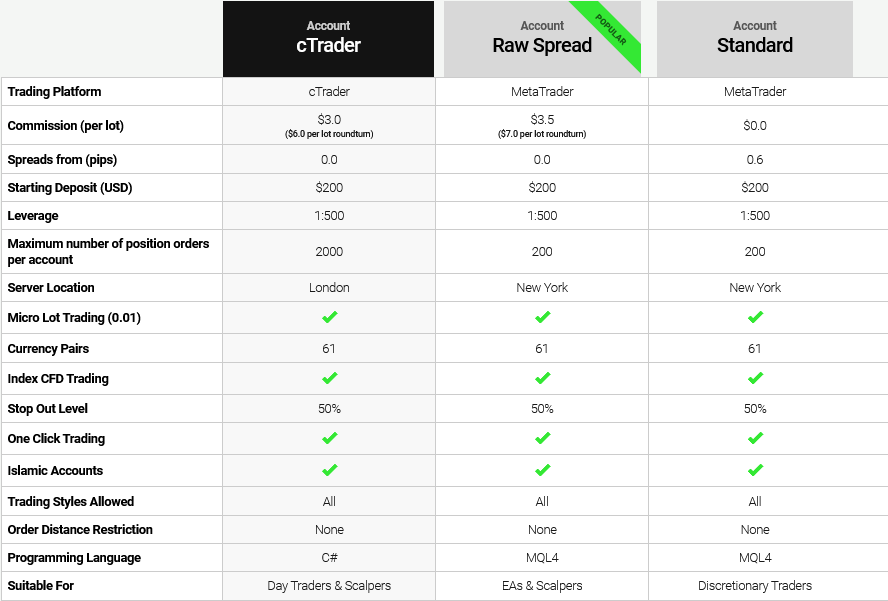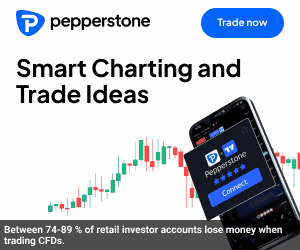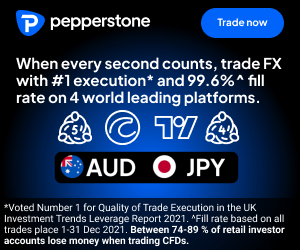IC Markets is a large broker in terms of volume with a monthly volume of $1.04 Trillion (November 2021).
The IC Markets Group has different branches around the world which are regulated by the Australian Securities and Investments Commission (ASIC), Cyprus Securities and Exchange Commission (CySEC), and the Seychelles Financial Supervisory Authority (FSA).
IC Markets combines low spreads (from 0.0 pips) and ultrafast execution, making it a suitable for high-volume traders, EAs, and scalpers.
This is a review to provide the necessary information about IC Markets including the fees, account types, trading platforms, and products offered just to mention a few. Without further ado, let us get into it.
Key Facts About IC Markets
| 💡 Founded | 2007 |
| 🏢 HQ | Australia |
| ⚖️ Regulation | ASIC, CySEC, FSA |
| 🖥️ Platforms | MT4, MT5, cTrader |
| 💳 Min. deposit | $200 |
| 💰 Base currencies | 10 |
| 🔑 Type of broker | ECN/STP |
| ☎️ Support | 24/7 |
| 💸 Leverage | Up to 1:500 |
| 🔗 Website | icmarkets.com |
IC Markets Pros & Cons
- Super tight spreads from 0.0
- cTrader and full MetaTrader suite
- 24/7 support
- Hasslefree deposit & withdrawal
- Ultra-fast execution
- No FCA regulation
- No platform suitable for beginners
Account Opening
The account opening process with IC Markets is pretty straightforward and accounts are usually verified within 24 hours.
The online application takes approximately 5-10 minutes to complete and as mentioned earlier, approval of the account is done within one business day.

When filling in the application form, the following information is required:
- Contact information, such as a valid email address.
- Personal information such as date of birth and residential address.
- Selection of the account type and base currency of the account.
- Completion of a survey about the client’s trading experience.
- Upload a copy of a valid passport or ID along with a utility bill or bank statement so that the client’s identity and residency can be verified.
Once the application form has been filled and submitted, it will be examined by the broker’s account team and then approved.
Deposit and Withdrawal
The deposit and withdrawal services of IC Markets have many options available for traders to choose from and there are no fees charged for deposits.
However, withdrawal can only be made with the same method that was used for the deposit. This simply means you cannot deposit funds through electronic wallets and then withdraw through bank transfer etc; it has to be through the same electronic wallet that was used to make the deposit initially.
Also, IC Markets has ten account base currencies available for clients to choose from.
Account base currencies
As earlier mentioned, IC Markets makes 10 base currencies available which are: EUR, USD, NZD, JPY, GBP, SGD, AUD, CAD, CHF, and HKD.
This is important because when traders fund their accounts in the same currency as their bank accounts or trade financial instruments in the same currency as their account base currency, then they will not have to pay a conversion fee.
One easy method of saving on currency conversion fees is to open a multi-currency bank account at a digital bank.
This type of bank tends to provide clients with bank accounts in different currencies with excellent currency exchange rates as well as international bank transfers that are either cheap or free.
The process to open a multi-currency account is straightforward as it can be done on the phone and only takes a few minutes.
Some good options might be Revolut or Wise.
Deposit fees and options
Depositing funds at IC Markets is done without deduction of any fee and traders have different options for adding money to their accounts.
The only issue is that some of the options for depositing funds are not available for all account base currencies (i.e. BPay only accepts payments in AUD).
Some of the options for payment include credit/debit cards, bank/wire transfers, and electronic wallets like PayPal, Neteller, and Skrill.
When using these options for payment, some can have instant payment while for others, it may take anywhere from 1-5 business days.
For example, a bank/wire transfer can take about 1-5 business days whereas making payments with credit/debit cards is instant as well as paying through any electronic wallet.
It should be noted that clients can only deposit money from accounts that are registered in their own names.
Withdrawal fees and options
Withdrawal of funds from IC Markets through bank/wire transfers, credit/debit cards, and electronic wallets does not carry any charge.
Also, the time required to access the funds is between one to two days depending on the withdrawal option used by the trader. Usually, for bank transfers, it takes two business days.
Just like in the deposit option, clients can only withdraw money to accounts registered in their names.
How to withdraw money from IC Markets
- Log on to the IC Markets platform
- After logging in, go to the section containing ‘Transfers’.
- Click on the drop-down menu and choose ‘Withdraw Funds’.
- Next is to add the appropriate bank account details if it is yet to be done.
- Then input the amount to be withdrawn and click ‘Submit’
The withdrawal will be implemented and the funds should be available within 1-2 business days.
Regulation and Security
IC Markets is regulated by three main financial authorities globally and the three major regulatory bodies are the ones with whom IC Markets has a license of operation.
This means that clients will receive varying levels of investor protection depending on where they live and the subsidiary they register their IC Markets account with.
ASIC (Australia)
In Australia, the regulatory body in charge of IC Markets is the Australian Securities and Investments Commission (ASIC).
The broker has an Australian Financial Services License designated as 335692 with International Capital Markets Pty. as the formal registered company name.
ASIC has multiple safeguards to protect forex traders such as requiring brokers to hold clients’ funds in a separate bank account, negative balance protection, and closeout margins.
Furthermore, there is enforcement of leverage caps for each asset class and type of CFD.
The banks used by IC Markets in Australia are the Westpac Banking Corporation (Westpac) and National Australian Bank (NAB).
CySEC (Cyprus)
The European branch of IC Markets is regulated by the Cyprus Securities and Exchange Commission (CySEC).
Brokers in this region are expected to adhere to the rules guiding forex trading as prescribed by the European Securities and Markets Authority (ESMA).
The ESMA works in conjunction with CySEC and they both have strict rules that encompass various aspects including:
- Reduced leverage (more to come on it in the next section)
- Negative balance protection
- Limitations on bonuses and promotions
FSA (Seychelles)
For traders that are not within Australia and the EU, IC Markets has a subsidiary under the name Raw Trading Ltd, and it is registered in Seychelles (Africa).
The company number is 8419879-2 with a dealer license number of SD018.
The Seychelles Financial Services Authority is the regulatory body monitoring the broker’s operation in this region and it is an offshore financial authority that does not enforce similar levels of investor protection like the CySEC or ASIC.
Overall, IC Markets is regulated in two ‘tier-1’ and one ‘tier-3’ (offshore) regions which means traders’ funds are safe and secure.
Fees and Spread
Fees
When trading forex, shares CFD, bonds, indices, etc. traders are likely to bear certain types of costs in executing a trade. One of such costs is the spread which is quite important as it plays a big role in determining the total cost of executing any trade.
Another cost is a commission (volume fee) which is a fee that traders pay for each side of the lots they trade. When commissions are charged, it means that there are narrower spreads because the broker does not get involved with the spread. Together, the spread and commission that IC Markets charges constitute what is referred to as brokerage or trading fees.
There are other types of fees such as funding fees and inactivity fees which together constitute non-trading costs as they are the operational costs for having an account with a broker.
With IC Markets , there are no funding or inactivity fees which means traders do not have to worry about incurring fees while making deposits or when they have not used their accounts for a while.
IC Markets generally charges lower forex fees than traditional brokers. This is possible because IC Markets employs electronic communication (ECN) and straight-through processing (STP) style trading for forex trading.
The ECN and STP help the clients of this broker to save costs as the trading process does not involve a dealing desk. With IC Markets, the trading fees depend on the type of account that the trader is operating.
Another fee to take note of with this broker is something called the Rollover Rate. It is also referred to as an overnight swap or finance fee and it is defined as the interest charged for keeping trading positions open after the close of a trading day.
The rollover rate depends on the differential of the interest rate between the currency pair kept open.
Spread
Spread is defined as the difference between the buy and ask price of a currency pair. The spread is usually expressed as a pip (percentage in point).
For IC Markets accounts without commission, the spreads are usually 1 pip wider. Usually, the type of account and instrument being traded determines the spread for any trade as seen in the table below.
Considering that IC Markets is supervised by strict regulatory bodies, it ensures that clients are protected from manipulation of spread and other abusive practices. This is why the broker abides by the rules on the spread as determined by the ASIC, CySEC, and FSA.
| Financial Instrument | Range of Spread |
| Forex | 0.17 – 1.97 |
| Commodities | 0.002 – 4.608 |
| Indices | 0.190 – 27.864 |
| Metals | 0.813 – 163.735 |
| Bonds | 0.01 – 0.03 |
| Cryptocurrency | 0.001 – 42.036 |
Leverage
The leverage that is available to the clients of this broker varies depending on the region they are trading from.
For traders that are under its offshore FSA regulatory division in Seychelles, they have access to the highest leverage level that this broker offers which is 500:1.
This leverage varies across the 61 currency pairs offered by IC Markets and its other CFDs (like cryptocurrencies).
Below is the leverage for the different instruments that the offshore branch of this broker offers:
- Forex, gold, and commodities – 500:1
- Indices, futures, and bonds – 200:1
- Shares – 20:1
- Cryptocurrency – 5:1
However, for traders that sign up to the European branch that is regulated by CySEC or the Australian branch that is regulated by ASIC, the maximum leverage is substantially lower as seen below:
- Major forex pairs – 30:1
- Minor forex pairs – 20:1
- Gold and major indices – 20:1
- Other commodities, futures, and minor indices – 10:1
- Shares and bonds – 5:1
- Cryptocurrencies – 2:1
Account Types
IC Markets offers two major types of accounts to traders which are the Standard Account and the Raw Spread Account.
For the standard account, no commission is charged but the spread of 1 pip is applied above the raw inter-bank rate that the broker gets from its liquidity providers.
For the Raw Spread account, a commission is charged at $7 per standard lot round turn. The Raw Spread account is of two types: one is designed to run on the MetaTrader platforms 4&5 while the other is tailored to the cTrader platform.
Below is a table highlighting the different features each account has.
Note that round turn refers to the opening and closing of a trading position.

Trading Platforms
MetaTrader is the primary provider of the web trading platform offered by this broker and the platform is very customizable with availability in various languages while also having a clear report about fees.
However, there is an absence of a two-step login; the two-step login helps to increase the security of a trader’s account and reduces the possibility of the account getting hacked. Furthermore, there is an absence of price alerts while the design is obsolete.
The most widely used trading platform on IC Markets is the MetaTrader 4 from Metaquotes which is available in different languages.
Other platforms that are available on IC Markets include cTrader and MetaTrader 5.
The level of customization on the MT4 platform is excellent as the position and size of tabs can be adjusted easily. However, the platform has an outdated look and feel which makes it difficult to access some critical functions.
The search function is manageable as a list of instruments that can be traded is available by category but it is not possible to search for an instrument by typing its name.
There are basic order types on the platform but advanced order types are not present which is another limitation of this platform. Also, traders cannot set alerts and notifications to monitor their trades as this feature is only available on the desktop trading platform.
Mobile trading platform
This is also provided by MT4 and it is available for both Android and iOS mobile phones. It has a satisfactory search function while it is possible for traders to set price alerts. There are also many languages to choose from just like in the web platform. However, it is slightly tricky on Android phones as it requires the default language of the device to be changed to the desired new language. Similar to the web platform, there is no two-step login either.
Desktop trading platform
This has a similar outlook to the web platform with the major difference being the presence of the alerts and notifications feature. However, to use this feature, traders must add a valid email address and a mobile MetaQuotes ID which can be found in the ‘settings’ section of the MT4 app.
Instruments
IC Markets is majorly a forex broker but it also offers some CFDs. Below is a table showing the number of all the financial instruments offered by this broker.
| Instruments | Number |
| Currency pairs | 61 |
| Stock index CFDs | 25 |
| Stock CFDs | 1,600 |
| ETF CFDs | 30 |
| Commodity CFDs | 20 |
| Bond CFDs | 9 |
| Cryptos | 10 |
It should be noted that retail traders in the United Kingdom cannot trade crypto-derivatives because the offering of crypto-derivates has been banned in the UK since January 2021.
Further, stock CFDs can only be traded on the MetaTrader 5 platform; this broker allows traders to change the automatic leverage of the financial instruments they are trading which is quite beneficial if traders are interested in lowering the risk of their trade.
Customer Support
There are three forms of customer support at IC Markets namely:
- Phone support
- Email support
- Live chat
The phone and email support are working fine, and IC Markets has support 24/7 availability.
The major weakness here is the live chat which can be slow in response and not necessarily provide clients with feasible solutions or answers to their problems or inquiries.
The phone and email support are very good with quick and immaculate responses to the inquiries of clients. Also, the 24/7 availability of customer support makes it a great help considering the broker has operations in three major regions of the world.
Education and Research
IC Markets offers some educational tools and services that traders can choose from and use to their benefit. Some of these educational tools include:
- General educational videos
- Webinars
- Platform tutorial videos
- Quality educational articles
- Demo account
The ‘Education’ section and the IC Markets blog contain useful content that is immensely helpful to traders. The content in both sections is adequately curated such that they cover relevant topics such as risk management and technical analysis.
The general educational videos have ok quality but they are difficult to locate because they cannot be found on the trading platform or the website as they are restricted to the Vimeo channel of this broker.
In terms of research, IC Markets offer research tools such as charting tools but it does not provide anything on fundamental data.
The charting tools are mildly satisfied with the availability of 31 technical indicators along with other technical tools like Fibonacci retracement and trendlines.
Trading Features
IC Markets offers different trading features to its clients which include copy/social trading, advanced trading tools, and PAMM/MAM.
Social/Copy Trading
This feature is made available on IC Markets offers through ZuluTrade.
ZuluTrade enables traders to identify successful traders (this is determined by ZuluRank, the proprietary performance evaluation algorithm of ZuluTrade) and copy their trades.
These trades are then translated into real trades in the trader’s IC Markets account. ZuluTrade also has a tool known as ZuluGuard that traders can use in monitoring the volatility of the different auto trading strategies that are available.
Advanced trading tools
These were recently introduced by IC Markets to provide its clients with more quality tools that will enhance their profit margins.
Some of the tools include the Correlation Matrix which provides traders with information on different time scales in the market so that they can make appropriate decisions; Trade Terminal which has an abundance of features thus making it possible for the trader to implement precision trading and perform adequate analysis.
Another is Market Manager which allows the trader to fully control symbol watch-lists and every order activity from a little window; Correlation Trader which allows traders to engage in the comparison of the correlation between two symbols so that they can trade arising differences.
PAMM/MAM
This is a multi-account manager feature from IC Markets that gives traders a chance to manage the money of clients.
It features dynamic allocation methods as well as real-time performance reports and commissions. It has the following properties: leverage is 500:1 with spreads starting from 0.0 pips, liquidity is deep along with a dependable MAM solution.
Business Model
IC Markets does not have a dealing desk because it employs electronic communication (ECN) and straight-through processing (STP) models.
These two forms of style trading (ECN and STP) make it possible for the broker to offer low forex fees, and without being the counter-party of your trades.
The broker mainly makes money by either charging commissions or adding one pip spread to the final spread before the execution of a trade. However, this depends on the type of account the trader is operating.
Also, because IC Markets uses more than 25 liquidity providers, the broker provides traders with real-time price quotes.
Experience with IC Markets
The phone support is working well as it did not take long for us to get connected to the customer service representative. It took about a minute and the representative provided us with answers.
The email support is also ok and. We sent five emails and got the answers to all of them within a day. The answers were quite relevant and immensely helpful while they also asked for feedback about the support service which was refreshing to see.
However, with the live chat, it was not very smooth and we think IC Markets should make some improvements on this particular service. It is slow with the average time waiting for an answer being more than 15 minutes.
History of IC Markets
IC Markets was founded in 2007 with the goal to bridge the gap between institutional and retail traders, by offering the same terms for every trader.
IC Markets Raw Spread Connectivity does exactly that, providing retail traders with spreads and pricing previously only available to institutions and high net worth individuals.
Today, IC Markets is used by over 300,000 traders processing over 29 billion USD each day in FX volumes.
The IC Markets Group has offices and is regulated in Australia, Cyprus, and Seychelles.
Conclusion
IC Markets is a broker with competitive spread and quite low forex fees; the account opening process is ok and does not take much time.
Withdrawals and deposits does unfortunately not happen with the speed we expect
Further, improvements could and should be made on its trading platforms and customer support especially the live chat which is quite unsatisfactory.
The obsolete design of the trading platforms can be discouraging but it can still be utilized well irrespective of the trader’s level of experience.
The product offerings are limited to CFDs and Forex while the investor protection is also limited to clients in certain regions.
But most importantly; We have talked to a lot of traders that have used IC Markets, and also if you google ‘IC Markets Scam’ you will unfortunately find a extremely long list of traders that have, -or have had huge problems with retaining their funds from IC Markets.
Hence, attracting clients through low spreads and fees, -while creating huge problems for a clients wanting to withdraw their funds are not something we would recommend for anyone…
The main priority for every trader upon choosing a broker is trust, -and as the expression goes; If in doubt, -there is no doubt…
IC Markets is not a broker we would recommend unfortunately…




